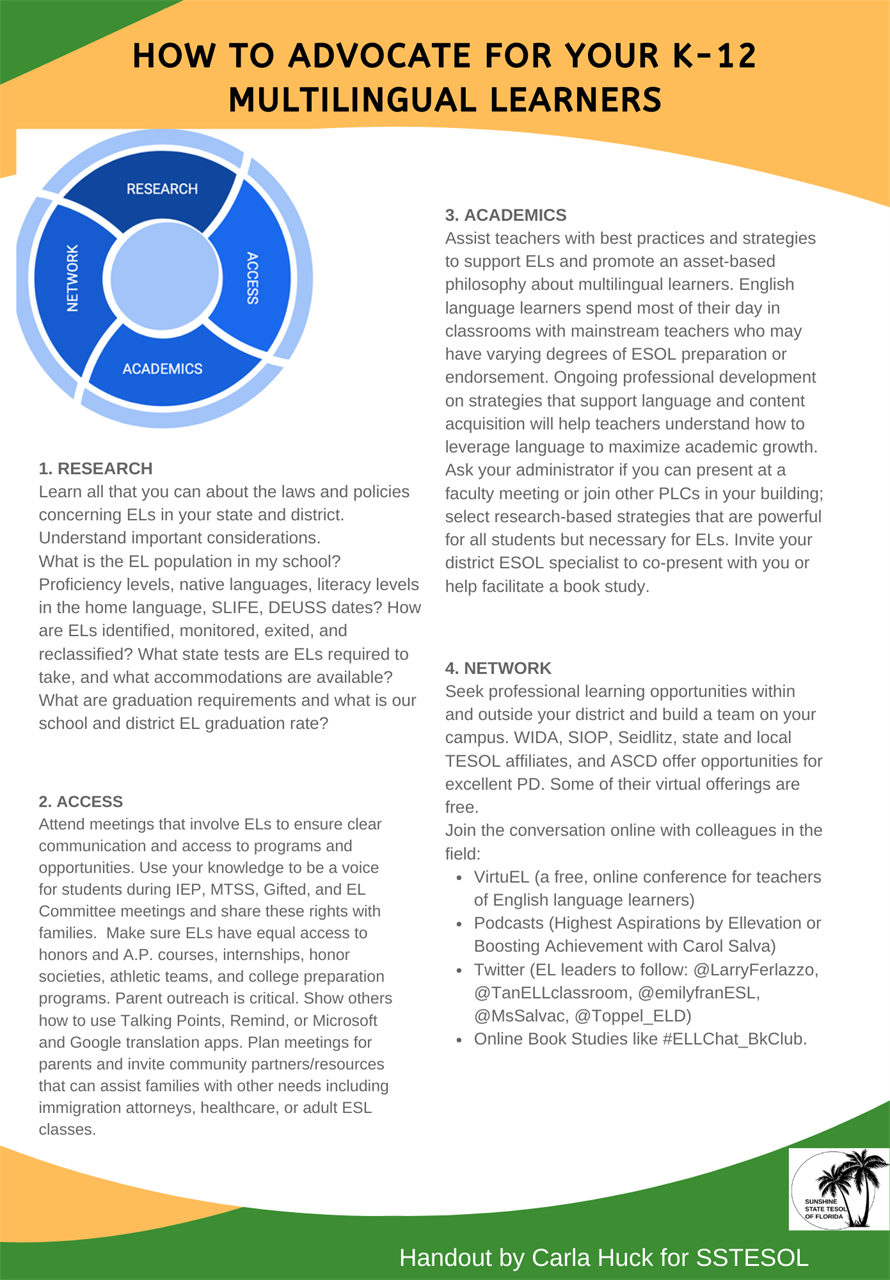|
IntroductionDemographically, Florida ranks third in the number of immigrants who have immigrated to the U.S. over the past twenty years. Until the Consent Decree of 1990, the myth that ESOL students were all concentrated in south Florida exacerbated many efforts for support in other parts of the state. On the other hand, proponents for ESOL students’ needs in south Florida expressed their concerns that they felt “alone” with the challenges of seeking sufficient support to meet the needs of the growing linguistic diversity among their students. Today we can say, “We’ve come a long way, baby!” We cannot deny, however, that our students and our profession remain marginalized. ESL professionals sometimes describe their discipline as an amorphous and undefined field within educational circles. They struggle for recognition and are frequently excluded from policy making boards that influence standards and principles relative to ESOL students. Florida, like most states, has relatively few language professionals in positions of influence at the state level. As ESOL professionals we can make a difference. Likewise, we can convince our students and their parents that what they have to say can also make a difference. Read tips below for practical advice! The Steps to Advocacy | How to Advocate for K-12 Multilingual Learners.pdf by Carla Huck |
| Stay Informed
|
| Take Action
|
| Write to Legislators
|
| Arrange Meetingswith officials to address specific concerns.
|
| Empower Your Students
|
* Adapted and used with permission from Dynamics of Grassroots Advocacy. (2000). Alexandria, VA: Teachers of English to Speakers of Other Languages, Inc.
 SUNSHINE STATE TESOL OF FLORIDA
SUNSHINE STATE TESOL OF FLORIDA





